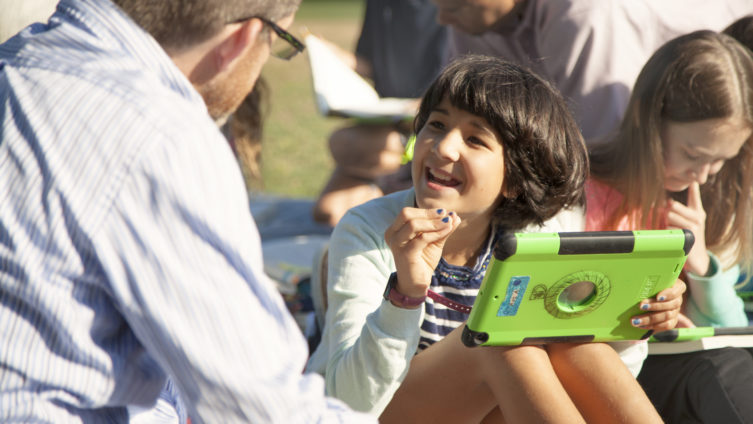
TCS is excited to roll out our revamped progress reports this year. The new format is drawn from the 2021 Strategic Plan, approved in 2016, and is the result of feedback from several focus groups last year that included teachers, parents and administrators.
Designed over the summer by a task force of 11 faculty and staff representing all grades, the final draft was further refined based on feedback from parents and faculty. The most notable difference between the new and old reports is that the new report is organized around core competencies rather than subjects.
But what does that mean, exactly? Imagine for a moment a student getting a good grade in science, and ask yourself “how does a student get a good science grade?” We intuitively know that high performance in science (and in any subject) is a combination of reading comprehension, listening skills, writing and math ability, critical thinking, collaborative skills with lab partners, and, above all, the ability to combine all of those skills into a well-regulated work flow. That last part requires a constellation of executive functions, including sustained attention, impulse control, planning and organizing, persistence over time, follow through, and reflection.
In short, doing well in school is complex!
We had to ask, if the competencies listed above are critical success attributes, shouldn’t we be actively teaching, assessing and documenting progress in those areas? For TCS, the answer is yes, and this perspective has driven the design of our new progress report. The report includes an expectation of strong academic skills in reading, written expression and mathematics; identifies key executive functions like attention, regulation, organization and reflection; and incorporates four important competencies for engaging and interacting with complex ideas, which are communication, collaboration, critical thinking and creativity.
Of course students will still be deeply engaged in science, social studies, the arts, literature, and all the subjects you expect of a school. As we continue to move to an immersive project-based curriculum, those subjects will be increasingly integrated, and will be oriented toward helping students use the different subject lenses to better understand their worlds and real-world events and issues. We will continue to communicate what your child is learning in social studies and science and how those are integrated into the projects in the monthly curriculum letters. You will receive feedback about these core subjects as part of the assessment for the projects they are included in.
We Need Your Help
As we introduce this new structure, we want to know how it meets your needs. We will be asking for your feedback once you have received your child’s report, and welcome your thoughts and ideas. Be on the lookout for a short survey following the December reports.









